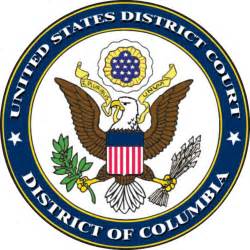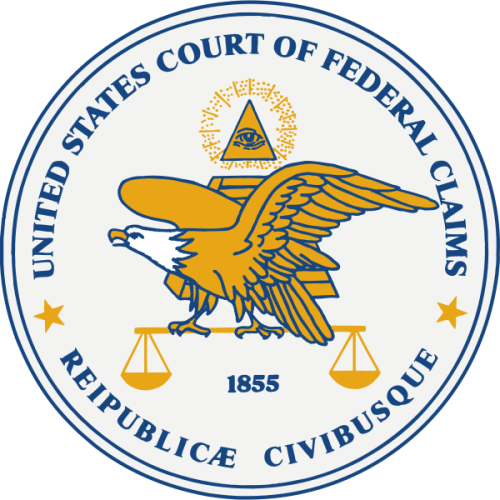
A longtime member of the Federalist Society, Trevor McFadden, in many ways, represents their ideal for a judicial candidate. He is strongly conservative, young, and has excellent academic credentials. Each of these points, conversely, is likely to draw Democratic opposition.
Background
Trevor Neil McFadden was born in Alexandria, VA in 1978. After getting his B.A. from Wheaton College in Illinois, McFadden spent two years as an officer with the Fairfax County Police Department. In 2006, McFadden graduated from the University of Virginia School of Law with the Order of the Coif, indicating superior academic performance. McFadden then clerked for Judge Steven Colloton on the U.S. Court of Appeals for the Eighth Circuit.[1]
After his clerkship, McFadden joined the Department of Justice, serving as Counsel for the Deputy Attorney General. After the inauguration of the Obama Administration, McFadden joined the U.S. Attorney’s Office for the District of Columbia, serving as a prosecutor for four years. During this time, he also served as a Part-time Deputy Sheriff for the Madison County Sheriff’s Office.
In 2013, McFadden left the U.S. Attorney’s Office to join the D.C. Office of Baker & McKenzie, LLP. After the election of President Trump, McFadden rejoined the Department of Justice, this time as second in command at the Criminal Division.
McFadden has been a member of the Federalist Society since 2003.
History of the Seat
The seat McFadden has been nominated for opened on December 31, 2016, with Judge Richard Leon’s move to senior status. On On March 2, 2017, McFadden was informed of the White House’s interest in naming him to the vacancy. McFadden was formally nominated by President Trump on June 7.
Legal Experience
McFadden may be a couple of years shy of forty, but he has managed to accumulate an impressive breadth of legal work in that time. While McFadden has taken on prominent policy roles in the Department of Justice, and has advised numerous corporations on compliance with federal law at Baker McKenzie, the bulk of his courtroom experience is from his stint as a federal prosecutor.
As an AUSA, McFadden worked primarily on prosecuting violent crimes. For example, McFadden successfully prosecuted a man who assaulted and robbed a 78 year old dialysis patient, .[2] McFadden also successfully defended the conviction of a defendant convicted of conspiring to distribute over a kilogram of PCP.[3]
Nevertheless, McFadden’s stint at the Criminal Division of the Department of Justice may draw more scrutiny. In this role, McFadden serves as second in command to Acting Assistant Attorney General Kenneth Blanco. McFadden may draw questions related to the recent charging memo released by Attorney General Jeff Sessions, calling on federal prosecutors to charge defendants with the strongest possible charges regardless of other factors.[4] McFadden may also face questions as to his involvement with the Department’s efforts to crack down on sanctuary cities.
Political Activity
McFadden has been fairly active in the Republican party, having canvassed for GOP candidates since his high school days. In his SJQ, McFadden notes that he has canvassed for President George W. Bush’s 2000 and 2004 campaigns, Mitt Romney’s 2012 campaign, and Rep. Tom Davis’ 1996 election campaign among others.
McFadden is also a supporter of President Trump, having donated $1000 to his election efforts, and being a vetter for his transition team.
Overall Assessment
As noted above, the young, conservative, and ambitious McFadden is likely to be a template for Trump nominees to the federal bench. As such, Democrats are likely to look for reasons not to support his nomination.
Most of the objections that can be drawn to McFadden are based on process. Unlike previous administrations, the Trump Administration declined to consult with D.C. Delegate Eleanor Holmes Norton in making federal court nominations. McFadden has already drawn criticism from Norton for not being a D.C. resident.[5] Furthermore, McFadden’s hearing, scheduled for the 28th of June, is moving forward without an ABA rating on his nomination. Furthermore, McFadden’s 14-year long history with the Federalist Society is unlikely to be missed as well. As such, expect a more difficult confirmation process for McFadden than his fellow D.C. nominees Friedrich and Kelly.
[1] Colloton himself is a former prosecutor and a shortlist candidate for a Supreme Court vacancy.
[2] See United States v. Brown, 2011-CF3-0160000 (D.C. Super. Ct.) (Judge Pan).
[3] United States v. Bell, 708 F.3d 223 (D.C. Cir. 2013).
[4] See Matt Ford, Jeff Sessions Reinvogarates the Drug War, The Atlantic, May 12, 2017, https://www.theatlantic.com/politics/archive/2017/05/sessions-sentencing-memo/526029/.
[5] Press Release, Office of the MP Eleanor Holmes Norton, Norton Urges Senate Democrats to Question D.C. Federal Nominees on Residency, Familiarity with D.C., After White House Nominates Non-D.C. Residents for the U.S. District Court and U.S. Attorney for the District of Columbia (June 13, 2017).


